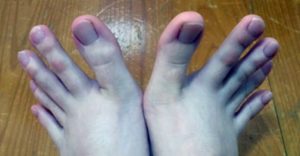National Geographic Channel coproduced the documentary Sleepless in America, according which 40% of Americans are sleep deprived. Adolescents are among the most sleep deprived. Many of the people in the United States sleep less than five hours.
There are a lot of consequences for the people that don’t sleep well as well as for those around them, and some of the consequences are even life-threatening.
According to many experts, sleep deprivation may have played a role in the Exxon Valdez oil spill, the Staten Island ferry crash, and the Three-Mile Island nuclear meltdown, as the film states. Moreover, countless people have lost their lives because of tired drivers behind the wheel.
Beside these accidents, lack of sleep also has been linked to cardiovascular disease, cancer, obesity and diabetes. Depression and anxiety disorders are also adversely impacted by lack of sleep.
The Importance of Staying in Sync with Nature
A crucial foundational component of sleeping well is maintaining a natural rhythm od exposure to sunlight during the day and darkness at night.
Dan Pardi, a research explains how exposure to bright daylight serves as the major synchronizer of your master clock—a group of cells in your brain called the suprachiasmatic nuclei (SCN).
When light enters your eyes, these nuclei synchronize to the light-dark cycle of your environment. Around your master clock, there are other biological clocks throughout your body.
The main reason why people suffer from lack of sleep is the drsruption of the master clock. Most of the people spen their days indoors, shielded from bright daylight, and their evenings in too bright artificial light.
As a results, their body clocks get out of sync with the natural rhythm of daylight and nighttime darkness, and when that happens, restorative sleep becomes elusive.
Night shifts also cause many problems associated with sleeping. According to the statistics, 15 million Americans work the night shift. It was discovered that three years of periodical night shift work can increase your risk for diabetes by 20% and the risk continues to rise with time.
What Happens When You’re Sleep Deprived?
Sleep deprivation affects many aspect of your health. Here are the five major risks to your mental and physical well being.
- Reaction time slows:
When you don’t sleep enough, you are not able to react as quickly as you normally would, which makes driving or other potentially dangerous activities risky. According to one study, sleepiness behindthe wheel is nearly as dangerous as drinking and driving.
- Your cognition suffers—both short- and long-term:
only one night of sleeping for 6 hours will impact your ability to think clearly the next day. One study showed that sleep deprived mice los 25% of the neourons located in their locus coerlueus, a nucleus in the brainstem associated with cognitive processes.
It is extremely important to sleep enough during the night, because if you don’t, you will have trouble processing information and making decisions.
The research also discovered that doctors who have worked for 24 consecutive hours, made diagnostic mistakes and they shot up by 400%.
Sleep deprived medical residents also reported a 73 percent increase in self-inflicted needle sticks and scalpel stabs.
Moreover, those who suffer from chronic sleep problems may develop alzneimer’s disease sooner, and this is because sleep is essential for brain detoification, a process during which harmful proteins linked to Alzheimer’s are cleared out.
- Memory and learning declines:
Neuroplasticity is considered to underline your brain’s capacity to control behaviour, including memory and learning. On the other hand, sleep and sleep loss modify the expression of several genes and gene products that may be important for synaptic plasticity.
- Emotions are heightened:
As we previously mentioned, when we are tired, our rection and cognition slows down, so in that case, our emotions get kicked into high gear. This results in fierce arguments at work or with your spouse at home.
Basic emotions like anger and fear are controlled by amygdala. Frontal cortex plays a key role in the regulation of emotions and sleep it vital for its function.
When you are rested, amygdala and frontal cortex are connected and works almost like a break to your emotional gas pedal.
On the other hand, when you are not rested, these two become dissconnected, allowing your emoions to run amok.
- Immune function and health deteriorates:
Lack of sleep can increase the risk of numerous chronic diseases, beause it has the same effect on your immune system as physical stress or illness.
According to the research, sleeping less than 6 hours triples your risk of high blood pressure, and women who get less than four hours of shut-eye per nightdoubletheir chances of dying from heart disease.6
You Need Around Eight Hours of Sleep Every Night
if you think that you can function well when you sleep less that 8 hours, you are just fooling yourself. However, 8 hours of sleep are not counted as 8 hours in bed, because you need at least 15 to 30 minutes to fall asleep, and you may have woken during the night one or more times. So you need to star sleeping around nine and a half hours in order to get a full eight hurs of sleep.
The Glorification of Sleep Deprivation
25% of Americans report having to cut down on sleep due to long workdays. According to the statistics, Americans get only 6.5 hours of sleep, on avegare. However, they report that they need to sleep at least 7.25 hours in order to function optimally. As noted in a previous article in The Atlantic:
“For some, sleep loss is a badge of honor, a sign that they don’t require the eight-hour biological reset that the rest of us softies do. Others feel that keeping up with peers requires sacrifice at the personal level—and at least in the short-term, sleep is an invisible sacrifice.”
Equating sleep with unproductivness can be traced back to the heyday of Thomas Edison. He was known for working around the clock. According to the featured article:
“Edison spent considerable amounts of his own and his staff’s energy on in publicizing the idea that success depended in no small part in staying awake to stay ahead of the technological and economic competition.”
He influenced many people to think the same. Over some period of time, even some children’s books and magazines began to promote his type of life. All Americans were encouraged by Edison to follow his statment that sleeping 8 hours a night is a waste of time and can be even harmflul. In 1914 he said: “There is really no reason why men should go to bed at all,”
The very moment the light-bulb was invented, the culture of sleep deprivation started and has only gotten worse with the invention of light-emitting electronics which disrupt your natural waking-sleeping cycle. Your electronic gadgets wreak havoc on your sleep when used before bedtime.
The Importance of Addressing Sleep Apnea
Sleep apnea is in fact the inability to breathe properly, or the limitation of breath during sleeping. It is another cause of sleep deprivation. People who deal with frequent collapse of the airway during sleep, making it difficult to breathe for periods lasting as long as 10 seconds, have problems with sleeping. He severe cases have at least 30 dusruptions per hour. Not only this problem interferes with sleep, making you ired the net day, but also reduces the amount of oxygen in your blood, which can impair the function of internal organs and/or exacerbate other health conditions you may have.
This condition is associated with health problems like obesity and type 2 diabetes. Some researches state that even a modest weight loss can halt the progression of obstructive sleep apnea. According to one five-year-long study, reducing weight can even cure the condition. Dr. Arthur Strauss, a dental physician and a diplomat of the American Board of Dental Sleep Medicine, states that factors such as the shape and size of your mouth, and the positioning of your tongue, can also play a significant role.
If your tongue or jaw position is the problem, it can be solved by specialty trained dentists who can design a custom oral appliance. These include mandibular repositioning devices, designed to shift your jaw forward, while others help hold your tongue forward without moving your jaw.
Another solution to relieve this condition can be in the form of speech therapy treatment called oral myofunctional therapy, which helps to re-pattern your oral and facial muscles.
How to Support Your Circadian Rhythm and Sleep Better for Optimal Health
In order to have an uninterrupted, restful sleep, you should make a small adjustment to your daily routine and sleeping area. Here are some of the changes you can make in order to sleep better and have better health:
Get some sun in the morning, and at least 30 minutes of BRIGHT sun exposure mid-day.
You need to spend at least 15 minutes on sunlight because your circadian system needs bright light to reset itself. Also, if you work indoors, make a point to get outdoors for at least a total of 30-60 minutes during the brightest portion of the day.
Sleep in a dark room.
Before going to sleep, ensure that your room is completely dark, because the slightest bit of light can disrupt your body’s clock and your pineal gland’s melatonin production.
Avoid watching TV or using your computer in the evening,at least an hour or so before going to bed.
Do not watch TV or use your computer before bed time because the blue light that these devices emit, trick your brain into thinking it’s still daytime. These devices also stifle the process of secreting melatonin, which your brain starts doing it between 9 and 10.
Keep the temperature in your bedroom below 70 degrees F.
According to some studies, the optimal room temperature for sleep is between 60 to 68 degrees F, so don’t keep your bedroom too warm.
Install a low-wattage yellow, orange, or red light bulb if you need a source of light for navigation at night.
Light in these bandwidths does not shut down melatonin production in the way that white and blue bandwidth light does. Salt lamps are handy for this purpose.
Use a fitness tracker to track your sleep.
Using a fitness tracker that monitors your sleep can be a useful tool to help motivate you to get to bed earlier, in order to get the required eight hours of sleep. When I first started using a fitness tracker, I was striving to get 8 hours of sleep, but my Jawbone UP typically recorded me at 7.5 to 7.75. Part of the equation too is going to bed earlier, as most of us have to get up at a preset time.
Take a hot bath 90 to 120 minutes before bedtime.
Taking a bath before sleeping will help you fall asleep much faster because it increases your core body temperature, and when you get out of the bath it abruptly drops, signaling your body that you are ready to sleep.
Avoid electromagnetic fields (EMFs) in your bedroom.
Make sure to turn off your wireless router while sleeping, because EMF’s can disrupt your pineal gland and its melatonin production, as well as cause many other biological effects.






